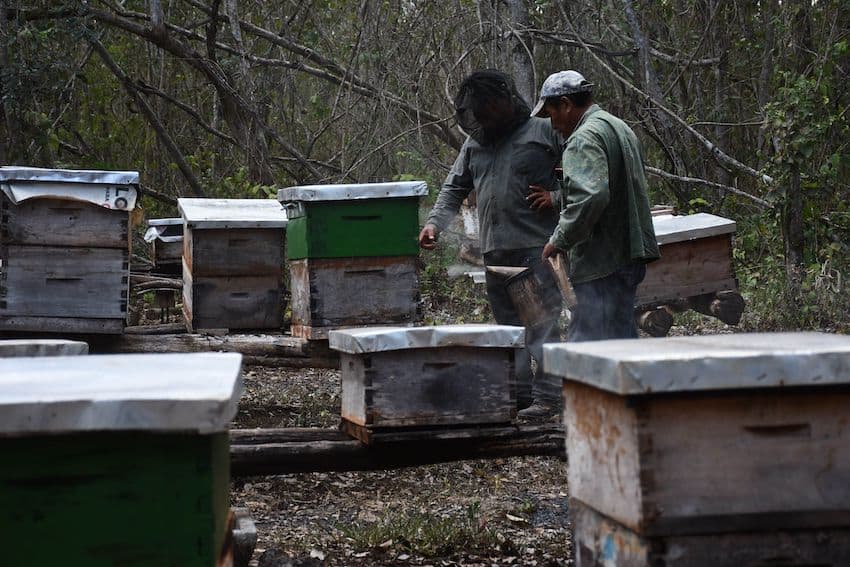‘Ecocide’ of 300,000 bees in Campeche prompts federal investigation

The Senate approved an initiative to investigate the “ecocide” of 300,000 bees in Campeche on Friday.
The Agriculture, Livestock, Fisheries and Rural Development committee approved the ruling, which will urge state and federal authorities to investigate those responsible for the deaths of the bees in Hopelchén, Campeche.
On Wednesday, the Hopelchén beekeepers requested that the state and federal environmental ministries declare an environmental emergency following the mass bee death, which they say is due to the use of agricultural chemicals.
Farmers claim the extermination was caused by the aerial fumigation of corn at the Zenit ranch, which they say is owned by the agrochemical company Bayer-Monsanto.
“This not only breaks an economic cycle, but a life cycle,” Ricardo Medina, a deputy in the Campeche Congress, said.
While there is no federal or state law regulating the sale of certain agrochemicals, legislators noted, the Agriculture Ministry has issued a list of prohibited products.
“They know they shouldn’t be used, but no one prevents them from being sold, much less monitors them,” Medina said.

The legislator emphasized the need to regulate the chemicals, as their intensive use has been reported to cause significant environmental damage.
The document prepared by the legislative committee highlights that the chemicals impact not only the bee population but the municipality’s beekeepers. As a result, the resolution for the investigation requires those responsible to compensate the Hoplechén beekeepers union in equal proportion to the damage caused. In addition, it requests establishing fines and sanctions for farmers who use pesticides toxic to bees and other pollinators.
The impacted beekeepers reported that 5,000 hives have already been impacted by the chemicals, and that more bees continue to die every week. They estimate the economic losses to be at least 12 million pesos (US $667,000).
The Campeche senators stressed that 75% of the world’s food production depends on pollinating insects, and that Mexico is the ninth-largest producer of honey in the world. The country earns US $100 million from the sale of honey and its derivatives.
The Campeche state ministries of agriculture and environment will take part in the investigation and the federal environmental protection agency (Profepa) will also participate.
With reports from Milenio and La Jornada
Source: Mexico News Daily

